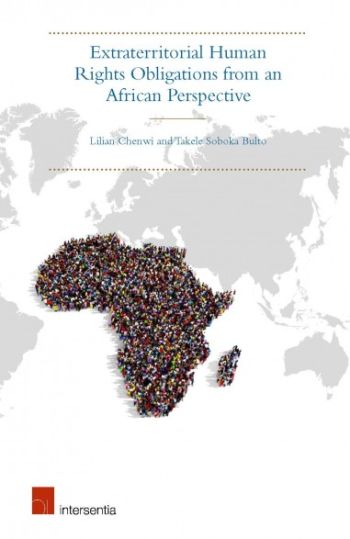We will be closed from 5pm Thursday 17th April for the Easter Bank Holidays, re-opening at 8.30am on Tuesday 22nd April. Any orders placed during this period will be processed when we re-open.

Extraterritorial Human Rights Obligations from An African Perspective addresses the often neglected question of whether African regional human rights instruments impose extraterritorial obligations on State parties, and if so, the extent and scope of these obligations.
The prevalence of extraterritorial violations of human and peoples’ rights in the African system, due to the actions or omissions of African as well as non-African states, has not gone unnoticed. Strengthening extraterritorial obligations in Africa is an urgent necessity to ensure a rights-based African regional order that seeks to address, among other issues, challenges stemming from globalisation, accountability for human rights violations in Africa where a third state or entity (as well as an intergovernmental organisation) is involved, and to ensure respect and protection of the human rights of future generations. With the increasing quasi-judicial and judicial scrutiny of the extraterritorial reach of human rights and states’ duties, at both international and regional levels, including from the African Commission, the African region is ripe for extraterritorial analysis.
Extraterritoriality is an emerging concept in the context of international human rights law, and has generally not been the focus of many books, and less so in the African context. This book is therefore among the first book of its kind providing the reader with a unique perspective on this important topic.